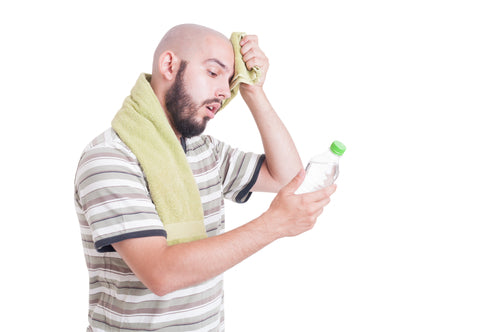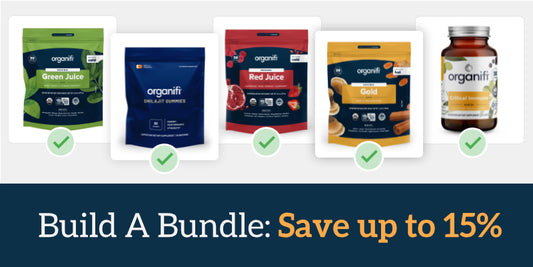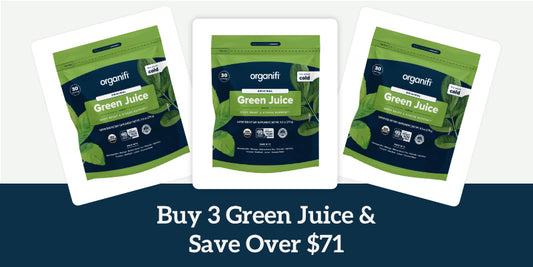I want to give you 6 ways to completely eliminate bloating… for good.
Doesn’t that sound amazing?! Well it is and now’s your chance to discover some simple secrets to do just that.
Summer is here! And I’m willing to bet you want to be comfortable not only at the beach, but out in public as well.
We’ve all been there. Remember, I used to be 40 pounds heavier (and it wasn’t muscle!).
Maybe you’re someone that stays up too late and you find yourself gorging on a late night snack, more often than not it’s something unhealthy like pizza or cookies.
Or your diet is off due to stress, lack of sleep or failure to grocery shop leaving you grabbing “convenient” fast food in place of REAL food.
And then comes the bloat. Yuck!
The puffy, uncomfortable belly paired with irregular digestion and sluggish bowels.
Ain’t nobody got time for that!
What if I told you that you have POUNDS of RETAINED WATER inside your body?
And this could be at the center of your bloating problems!
So what’s the deal with water retention – or edema? Well, it’s actually pretty common and just like those poor diet decisions, it causes unwanted BLOAT.
Edema is an excess of watery fluids accumulated in the cavities or tissues of the body. It usually occurs before or during pregnancy and can cause swellings in the legs, ankles, feet and hands. But pregnancy is not the only reason for this to occur.
Statistics tell us that at least 4.4 million people in the US have developed Edema.

Edema commonly occurs in inactive people, people who are on long-term medications, bedridden or people with sedentary lifestyles.
That’s why you’ve got to get up and MOVE your body, peeps! Even a walk around the block is better than staying stuck on the couch.
While it’s typically not a life-threatening condition, it can lead to serious issues such as heart failure or kidney disease.
Did you see our video a few weeks ago on detoxing your almighty kidneys?
The good news is, in most cases, water retention can be prevented, treated and that annoying edema can be reduced.
I’m going to share with you 6 of the most common causes of water retention and what you can do to BEAT the BLOAT.
1. Excessive Sodium Intake
Yes, we NEED salt. But most people are consuming TOO MUCH of the WRONG KIND. Table salt lacks the essential components we need each day. Which is why you should always be using Himalayan or Celtic Sea Salt.
Excessive consumption of high-sodium foods and insufficient water intake cause the body to activate its reserve mode and retain water. In this case, the cells might become 20 times enlarged with water to dilute the salty environment.
Furthermore, salt is not the only food that is high in sodium. For instance, canned vegetables, condiments and processed meat can also be rich in sodium.
In this case, it is recommended that you consume water with Celtic sea salt or Himalayan salt to help you with water retention. Seems counterproductive, right?
But it’s not. Because QUALITY salt contains an incredible amount of trace elements – at least 84 – to bring your body into balance.
2. Vitamin B6 Deficiency

Vitamin B6 has the ability to regulate the water balance in the body. Therefore, lack of vitamin B6 can lead to water retention.
According to the Journal of Caring Sciences study, women who experienced water retention due to premenstrual syndrome found the intake vitamin B6 highly beneficial. They also reported that vitamin B6 reduced the symptoms more effectively than any other supplement they have previously used.
Vitamin B6 is water-soluble and it needs a number of cofactors to work properly. Therefore, it is recommended that you take it in the form of whole foods.
Foods high in vitamin B6 include: tuna, turkey, chicken, (unsweetened) dried fruit, sunflower seeds, unpeeled potatoes, pistachio nuts, lean beef and bananas.
3. Potassium Deficiency
Potassium is of vital importance for proper function of your body’s organs, tissues and cells. It acts as an electrolyte which maintains the water balance in the body.
There are many factors which can lead to potassium deficiency, including excessive consumption of foods high in salt, excessive sweating during physical activity, and simply not eating enough foods rich in potassium. This can further lead to edema.
Lack of potassium can cause other health problems such as weight gain, muscle spasms and cramps.
It is recommended that you reduce the sodium levels and consume more potassium-rich foods such as: honey melon, banana, watermelon, and rock melon. Try to consume it through fruits and vegetables, rather than supplements.
4. Dehydration

Dehydration is caused by insufficient water intake. In this case, the body starts retaining water in order to survive. Drinking large amounts of water and juices rich in potassium will reduce edema and dehydration.
You want to avoid soda drinks and coffee since they additionally dehydrate the body. Aim for ½ your body weight in ounces daily – more if you’re active.
5. Magnesium Deficiency
Magnesium deficiency is a common cause of water retention. This mineral is essential for almost every body function so its deficiency can alter a number of functions in the body and lead to water retention. A study has found that 200mg of magnesium on a daily basis can reduce water retention in women with premenstrual symptoms.
In this case, it is recommended that you consume foods rich in magnesium and take high-quality magnesium supplements.
Foods rich in magnesium include: dark green vegetables, nuts, avocados, unsweetened dried fruits, and dark chocolate. You can also absorb it transdermally (through your skin) by taking a bath with espom salt.
6. Excessive Consumption of Processed Foods

Processed foods are loaded with sodium, sugar and artificial sweeteners. These chemicals can damage your liver and kidneys causing numerous health issues, including high blood pressure.
They can also increase your blood sugar levels and cause insulin spikes, which lead to sodium retention in the cells. So, you should avoid processed foods as much as possible.
Instead aim for whole foods. That means food as close to their natural state as possible. The ingredient list of an Oreo is a mile long. But the ingredient list of a carrot is...a carrot.
The closer you can get to food's original form, the better!
Bonus: Helpful Supplements
While it's usually best to resolve an issue first through diet, sometimes a little extra help is needed.
One of the best ways to reduce bloating is by taking a quality probiotic. Some strains (like lactobacillus casei, bacterium longum, and lactobacillus acidophilus) specifically help to improve digestion.
We made sure to include each of these in our "Biotic Balance." If you're currently taking a probiotic, make sure it has these three, to help prevent bloating.
There are also a handful of herbs that can be extremely beneficial in reducing water retention:
- Horsetail
- Dandelion
- Nettle
- Hibiscus
- Garlic
- Fennel
- Parsley
Although in rare cases bloating can be a sign of something more serious, most of the time it can be avoided or eliminated simply by making a few tweaks in your diet and lifestyle.
Bloating is your body telling you something is not quite right. Learn to listen to these small signs your body gives you that something needs to change.
If you learn to listen to the small things you won’t have to deal with big things later on.
Remember, we’re in this together!




